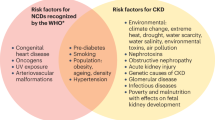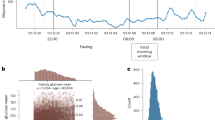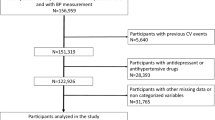Abstract
The objectives of the study were to appraise the knowledge which the patients have about their hypertension, and to assess the knowledge and involvement of pharmacists in the management of the hypertensive patient. All the pharmacies in the Poitou-Charentes area were invited both to participate in a training session about arterial hypertension and asked to fill in a pharmacist's questionnaire. Furthermore, each participant was required to submit a patient's questionnaire to 20 consecutive hypertensives. A total of 104 pharmacies and 1015 hypertensive patients participated in the survey. In all, 88% of the patients (n=893) were aware of their blood pressure (BP) figures, but 68% (349/515) considered themselves wrongly, to be normalized; 39% (n=350) only had BP figures <140/90 mmHg. They said they had been poorly informed about recommended lifestyle changes. In all, 18% (n=185) were equipped with an automatic device. A total of 77% (n=779) were able to give the names of their drugs without the help of the pharmacist. Treatment-related unwanted effects were reported by 8% of the patients (n=79). Only 18% (n=29) of the pharmacists were able to provide a correct definition of hypertension. Most of them thought hypertension was well controlled in the general population and considered that both tolerance of and compliance with antihypertensive treatment were satisfactory. They could most often (80%, n=135) supply a SBPM device, but 58 (36%) only were able to provide relevant advice regarding the recommended procedures. In conclusion, The BP goals and the lifestyle modifications are poorly known by the hypertensives. Pharmacists' knowledge is frequently wrong and should be improved by appropriate training programmes.
This is a preview of subscription content, access via your institution
Access options
Subscribe to this journal
Receive 12 digital issues and online access to articles
$119.00 per year
only $9.92 per issue
Buy this article
- Purchase on Springer Link
- Instant access to full article PDF
Prices may be subject to local taxes which are calculated during checkout

Similar content being viewed by others
References
Girerd X et al. Estimation du nombre des sujets traités pour une HTA, un diabète ou une hyperlipidémie en France : étude FLAHS 2002. Arch Mal Cœur 2003; 96: 750–753.
Marques-Vidal P et al. Sex differences in awareness and control of hypertension in France. J Hypertens 1997; 15: 1205–1210.
Chamontin B et al. Prevalence, treatment, and control of hypertension in the French population: data from a survey on high blood pressure in general practice, 1994. Am J Hypertens 1998; 11: 759–762.
Lang T et al. Epidemiology Group of the Societe Francaise d'Hypertension Arterielle and the IHPAF Working Physicians Group. Prevalence and therapeutic control of hypertension in 30,000 subjects in the workplace. Hypertension 2001; 38: 449–454.
Kjellgren KI et al. Hypertensive patients' knowledge of high blood pressure. Scand J Prim Health Care 1997; 15: 188–192.
Ashida T et al. Relationship between home blood pressure measurement and medication compliance and name recognition of antihypertensive drugs. Hypertens Res 2000; 23: 21–24.
Bortolotto LA et al. Feasibility and importance of self-monitoring in patients over 75 years old. Arch Mal Coeur Vaiss 1999; 92: 1159–1162.
Wizner B et al. Normal blood pressure values as perceived by normotensive and hypertensive subjects. J Hum Hypertens 2003; 17: 87–91.
Alexander M, Gordon NP, Davis CC, Chen RS . Patient knowledge and awareness of hypertension is suboptimal: results from a large health maintenance organization. J Clin Hypertens 2003; 5: 254–260.
Mulrow CD et al. Dieting to reduce body weight for controlling hypertension in adults. Nurs Times 2001; 97: 42.
Whelton SP, Chin A, Xin X, He J . Effect of aerobic exercise on blood pressure: a meta-analysis of randomized, controlled trials. Ann Intern Med 2002; 136: 493–503.
Xin X et al. Effects of alcohol reduction on blood pressure: a meta-analysis of randomised controlled trials. Hypertension 2001; 38: 1112–1117.
Cutler JA, Folleman D, Alexander PS . Randomised control trials of sodium reduction: an ovierview. Am J Clin Nutr 1997; 65(Suppl 2): 643S–651S.
Havas S, Roccella EJ, Lenfant C . Reducing the public health burden from elevated blood pressure levels in the United States by lowering intake of dietary sodium. Am J Public Health 2004; 94: 19–22.
Appel LJ et al. Effects of comprehensive lifestyle modification on blood pressure control: main results of the PREMIER clinical trial. JAMA 2003; 289: 2083–2093.
Appel LJ et al. A clinical trial of the effects of dietary patterns on blood pressure. DASH Collaborative Research Group. N Engl J Med 1997; 336: 117–124.
Valente CM et al. Health promotion: physicians' beliefs, attitudes, and practices. Am J Prev Med 1986; 2: 82–88.
Kushner RF . Barriers to providing nutrition counseling by physicians: a survey of primary care practitioners. Prev Med 1995; 24: 546–552.
Wechsler H et al. The physician's role in health promotion revisited — a survey of primary care practitioners. N Engl J Med 1996; 334: 996–998.
Airaksinen M, Ahonen R, Enlund H . Drug information from pharmacies: desire for more spontaneous information. Med Care 1993; 31: 846–850.
Ridout S, Waters WE, George CF . Knowledge of and attitudes to medicines in the Southampton community. Br J Clin Pharmacol 1986; 21: 701–712.
Enlund H, Vainio K, Wallenius S, Poston JW . Adverse drug effects and the need for drug information. Med Care 1991; 29: 558–564.
Lisper L, Isacson D, Sjoden PO, Bingefors K . Medicated hypertensive patients' views and experience of information and communication concerning antihypertensive drugs. Patient Educ Couns 1997; 32: 147–155.
Bailey BJ et al. Hypertension treatment compliance: what do patients want to know about their medications? Prog Cardiovasc Nurs 1997; 12: 23–28.
Caro JJ et al. Effect of initial drug choice on persistence with antihypertensive therapy: the importance of actual practice data. CMAJ 1999; 160: 41–46.
Bloom BS . Continuation of initial antihypertensive medication after 1 year of therapy. Clin Ther 1998; 20: 671–681.
Dusing R, Weisser B, Mengden T, Vetter H . Changes in antihypertensive therapy — the role of adverse effects and compliance. Blood Press 1998; 7: 313–315.
Gascon JJ et al. Why hypertensive patients do not comply with the treatment: results from a qualitative study. Fam Pract 2004; 21: 125–130.
Asmar R, Zanchetti A . Guidelines for the use of self-blood pressure monitoring: a summary report of the first international consensus conference. J Hypertens 2000; 18: 493–508.
2003 European Society of hypertension — European Society of Cardiology guidelines for the management of arterial hypertension. J Hypertens 2003; 21: 1011–1053.
Stergiou GS et al. Home monitoring of blood pressure: limited value in general practice. J Hum Hypertens 1996; 10: 219–223.
Tyson MJ, McElduff P . Self blood pressure monitoring — a questionnaire study: response, requirement, training, support-group popularity and recommendations. J Hum Hypertens 2003; 17: 51–61.
O'Brien E et al. Blood pressure measuring devices: recommendations of the European Society of Hypertension. BMJ 2001; 322: 531–536.
Cuspidi C et al. Improvement of patients' knowledge by a single educational meeting on hypertension. J Hum Hypertens 2001; 15: 57–61.
Palumbo G et al. Hypertension and patient education: can a booklet change anything? (Abstract). Am J Hypertens 2000; 13: 295A–298A.
Saito I, Saruta T . Effect of education through a periodic newsletter on persistence with antihypertensive therapy. Hypertens Res 2003; 26: 159–162.
Earle KA et al. A physician–pharmacist model for the surveillance of blood pressure in the community: a feasibility study. J Hum Hypertens 2001; 15: 529–533.
Carter BL, Zillich AJ, Elliott WJ . How pharmacists can assist physicians with controlling blood pressure. J Clin Hypertens 2003; 5: 31–37.
Chabot I, Moisan J, Gegoire JP, Milot A . Pharmacist intervention program for control of hypertension. Ann Pharmacother 2003; 37: 1186–1193.
Cote I et al. A pharmacy-based health promotion programme in hypertension: cost–benefit analysis. Pharmacoeconomics 2003; 21: 415–428.
Acknowledgements
We are grateful to the pharmacists of the Poitou-Charentes area for their participation in this survey. We thank Etienne Richard and Michel Cuenot from Astra Zeneca for their logistic help in organizing the training sessions. We are also indebted to Roselyn Mazet for her linguistic assistance.
Author information
Authors and Affiliations
Corresponding author
Rights and permissions
About this article
Cite this article
Ragot, S., Sosner, P., Bouche, G. et al. Appraisal of the knowledge of hypertensive patients and assessment of the role of the pharmacists in the management of hypertension: results of a regional survey. J Hum Hypertens 19, 577–584 (2005). https://doi.org/10.1038/sj.jhh.1001859
Received:
Revised:
Accepted:
Published:
Issue Date:
DOI: https://doi.org/10.1038/sj.jhh.1001859
Keywords
This article is cited by
-
Perceptions of pharmacists on the quality of automated blood pressure devices: a national survey
Journal of Human Hypertension (2022)
-
Appraisal of the Knowledge of Hypertensive Patients Regarding Blood Pressure Control and Comorbidities: Results of a French Regional Survey
High Blood Pressure & Cardiovascular Prevention (2016)
-
Improving hypertension management through pharmacist prescribing; the rural alberta clinical trial in optimizing hypertension (Rural RxACTION): trial design and methods
Implementation Science (2011)
-
Pharmacist intervention program to enhance hypertension control: a randomised controlled trial
International Journal of Clinical Pharmacy (2011)
-
Blood pressure control and antihypertensive pharmacotherapy patterns in a hypertensive population of Eastern Central Region of Portugal
BMC Health Services Research (2010)



